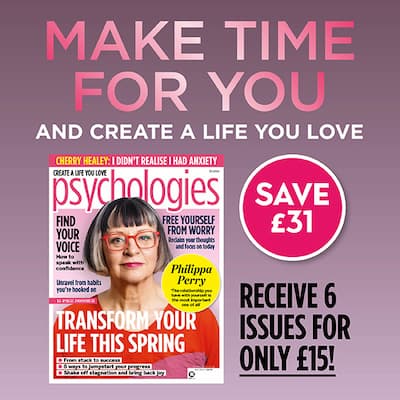4 Steps to Transform Work Relationships
Most of us have one or two “nemesis” relationships at work – people that we just can’t seem to influence or that we always come up against when trying to progress.

Are there certain people that you dread joining a meeting? Or stakeholders that you just know won’t get on-board with a change that you’re leading? Maybe someone whose behaviour you find irritating or people who make progress feel much harder than it needs to be.
What tends to happen in these situations is one of two things
- We share stories about this person with people who feel the same way (or at least they say they do). This re-enforces our view of them and keeps us stuck in our position.
- We go into endless self-analysis – Why don’t they rate me? Why won’t they listen to me? Why are they determined to make my life difficult?
Taking inspiration from East Asian culture we can re-frame the dynamics of a relationship and help unlock a transformation that may have seemed totally out of reach.
Nunchi (pronounced “noon-chee”) is a Korean word that literally means eye measure. Korean parents believe that teaching their children nunchi is as important as teaching them to cross the road safely. There is no equivalent in the English language, interesting in itself, the closest description we have is the subtle art of gauging other people’s thoughts, and feelings in order to build trust, harmony and connection.
Hazel Rose Markus and Shinobu Kitayama write about this highly prized quality in their 1991 paper “Culture and the Self”. They go on to compare this willingness to tune into other people with the Western tendency to tune into their own feelings and preferences. Of course, both are needed to create healthy relationships but it seems our culture may be leaning far too much towards self-analysis and not enough towards others.
We have known for years that Eastern cultures value collectivism and a higher context than the West’s focus on individualism. Bringing this insight into tricky work relationships is a helpful challenge to our habitual response. Rather than over-analyse ourselves or blame the other person, with nunchi we quieten our judgements and assumptions and instead look and listen carefully to understand the world from their perspective. This puts us in a much better position to choose our own behaviour, build trust, connection and ultimately a better result.
With nunchi as our context, here are 4 practical steps to transforming relationships at work.
4 Steps
1. Notice – when you are with the person, observe their body language. This is a human skill that we learn from an early age and often forget to use. Anger and frustration are usually pretty easy to spot, but emotions such as fear, confusion, anxiety are often less obvious. A stakeholder who keeps saying “no” to your requests may actually be worried about how to manage the impact on them and their team. Something you could then offer to help with.
2. Listen – often called “active listening”, rather than just the words they’re saying, listen out for the possible meaning underneath the words. Quieten the voice in your head, usually desperately waiting to repeat your point or defend what’s been said. Be curious and genuinely seek to understand what’s going on for them, how they see the situation from their point of view and why it is important to them. It’s surprising how often the “scary boss” described in coaching conversations turns out to be under-pressure themselves, feeling insecure or vulnerable and afraid of failing. Even if they don’t say this aloud, when you can see it’s true it’s much easier to respond in a way that builds a healthier relationship.
3. Acknowledge – in over twenty years of working with organisations in high-pressure, high-change environments, this is the simple behaviour I’ve seen make the biggest difference to relationships at work (and it’s certainly true in my home life too). Once you have fully understood a situation from someone else’s viewpoint, acknowledge it. Use their words, not your own, say it simply and clearly with no judgment attached. “OK I think I understand – you behave this way in meetings because you’re frustrated by the lack of pace – is that right?”, or “So you email me in the evenings because you feel it will save us time talking the next day – is that right?”. Whether you agree or disagree is not relevant, this is about showing you understand their perspective. From there you can make progress.
4. Be generous – when unhealthy relationships have run for a long time it can be extremely hard to find any compassion for the other person, understandably so. Especially if they have caused us stress, frustration, even pain. However, when there are two people in the relationship there’s only one person’s behaviour that you can control – you own. So if you really want the relationship to transform, choose a fresh approach, be optimistic in your assumptions about the other person, see their positive intent and make a generous move. This could be something tangible or simply a belief or mindset that leads to a different result. A recent Executive coaching client had been treated poorly by some of his colleagues. After communicating fully about the impact on him and what he needed to continue to perform well, he chose to forgive them. He would have been perfectly entitled to hold a grudge for years but he knew this wouldn’t lead to progress, or wellbeing for that matter.
There are many features of healthy relationships, these are by no means the only steps. When organisations are experiencing huge amounts of change or when we are transitioning into a new role, our relationships often suffer. Nunchi brings a different perspective to fostering relationships that work.
Ella Overshott
Director
With over 25 years’ experience in sales and operational leadership, culture change, employee engagement and executive coaching, I bring a practicality and commercial focus to coaching. Experienced in working with high potential leaders, Executives and their teams, my approach combines big picture, forward thinking with digging deep to challenge old habits and limiting beliefs. Many of my clients are either experiencing a transition in role or are leading significant change in their organisation. As such, typical outcomes include: • Effective, productive relationships • Increased resilience and well-being • Authentic, effective leadership behaviours • Greater credibility and influence • High performing leadership teams • Shifting organisational culture and ways of working In addition to business and personal coaching accreditation, I am a practitioner in Gallup Strengthsfinder, Myers Brigg and EQi-2.0.




